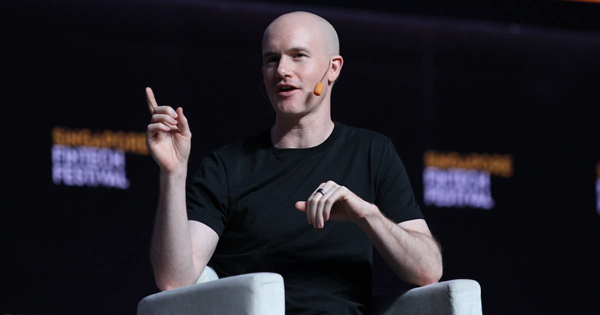Coinbase CEO Criticizes Outdated Stablecoin Regulation, Pushes for Interest Earning Rights for Users

Coinbase CEO Brian Armstrong has called on US lawmakers to ensure that stablecoin laws allow consumers to earn interest, arguing that US financial policy should not prioritize protecting banks at the expense of slowing blockchain innovation.
In a March 31 post on X, Armstrong emphasized that the legislation under consideration would allow crypto companies to offer “onchain interest” to stablecoin holders, turning digital dollars into interest-bearing savings accounts.
“Governments should not manipulate policy to favor one industry over another,” Armstrong wrote. “Banks and crypto companies should both be allowed to share profits with users, in the spirit of free markets.”
Stablecoin Regulation Faces Pressure to Change
Stablecoins like USDC are pegged 1:1 to the US dollar and are often backed by reserve assets like short-term Treasury securities. Currently, the profits from these assets go largely to the institutions that issue the stablecoins. Armstrong argues that it’s time to share those profits with users, rather than keeping them all for themselves.
The Coinbase CEO’s comments come as Congress is debating two stablecoin bills: the House’s STABLE Act and the Senate’s GENIUS Act.
However, both bills require stablecoin issuers to comply with the Bank Secrecy Act (BSA) – a cornerstone of US anti-money laundering laws. House Majority Whip Tom Emmer (R-MN) has spoken out against the bill, arguing that stablecoins should not be forced into the BSA’s regulatory framework.
The BSA, enacted in 1970, requires financial institutions to keep detailed transaction records and verify customer identities. Some argue that applying the BSA to stablecoins could give US companies an edge over global rivals, but it also risks over-regulating the blockchain industry.
Coinbase Considers Changing Altcoin Listing Process
Along with the stablecoin debate, Armstrong is also pushing for more flexibility in how digital assets are listed on Coinbase.
On X, the Coinbase CEO said that about a million new tokens are released to the market every week, making it impractical to review each one individually. Armstrong confirmed that the exchange is reevaluating its listing process, which requires digital assets to undergo a rigorous vetting process before being accepted for trading.
"We need a more efficient listing process that matches the pace of the industry," Armstrong said.
Political Controversy Over Stablecoins
The tension over stablecoin regulation has also drawn attention from the US political establishment. Senator Elizabeth Warren (D-MA) accused former President Donald Trump of using stablecoin legislation as a means of personal enrichment, especially since his new DeFi startup, World Liberty Financial, recently launched a stablecoin called $1.
"Trump is turning stablecoin legislation into a scam to enrich himself," Warren wrote on X, referring to the move as another form of "money laundering" by the former president.
The debate over stablecoins is expected to continue as lawmakers seek to balance traditional financial regulation with the innovative potential of blockchain.
